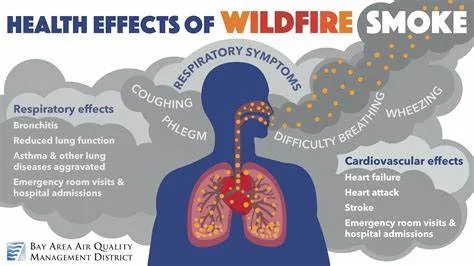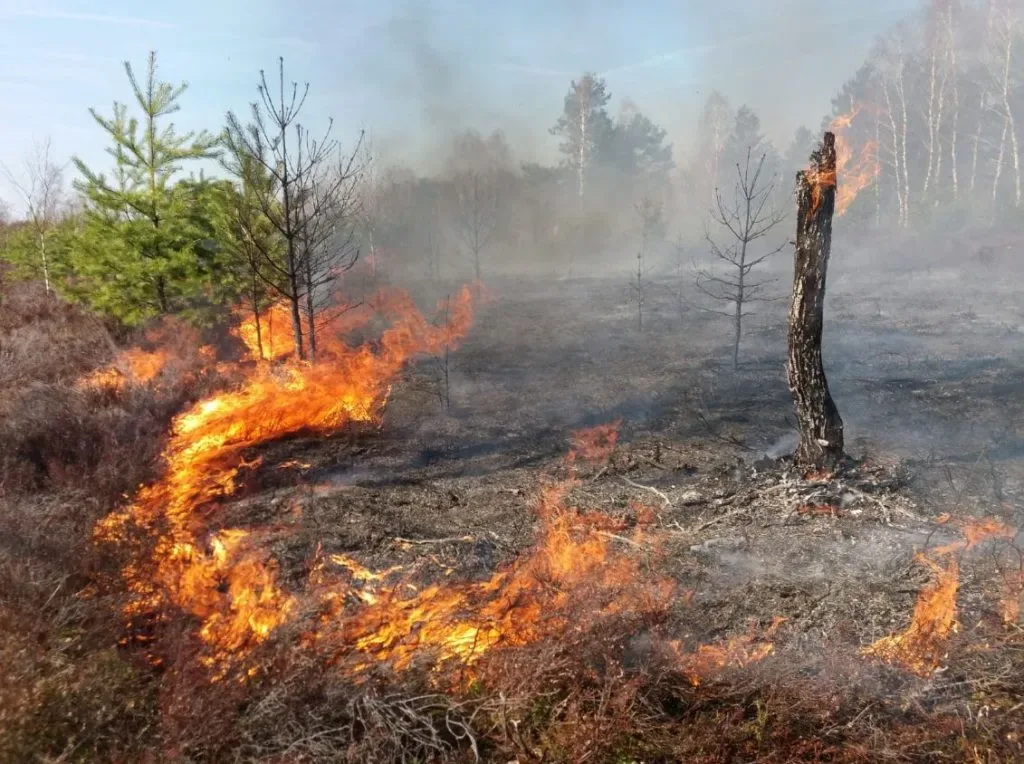A recent study has uncovered a significant correlation between exposure to wildfire smoke and a surge in medical visits for heart and lung-related issues. The research, which analyzed the impact of Canadian wildfires on Baltimore’s air quality, found that hospital visits for cardiovascular and respiratory problems increased by nearly 20% during periods of heavy smoke exposure.

The Growing Health Crisis
Wildfire smoke contains a complex mixture of harmful pollutants, including fine particulate matter (PM2.5), carbon monoxide, and volatile organic compounds. These pollutants can travel thousands of miles, affecting air quality far beyond the fire’s immediate vicinity. The study highlights the serious health consequences of prolonged exposure, particularly for vulnerable populations.

Who Is Most at Risk?
Certain groups are more susceptible to the adverse effects of wildfire smoke:
- Older Adults: Individuals over 65 years face increased risks due to decreased lung function and underlying health conditions.
- People with Pre-Existing Conditions: Those suffering from heart disease, asthma, and chronic lung conditions are more likely to experience severe symptoms.
- Children and Pregnant Women: Studies suggest that wildfire smoke exposure may lead to low birth weight and developmental issues in newborns.
Health Impacts of Wildfire Smoke
Exposure to wildfire smoke can trigger a range of serious health problems, including:
- Respiratory Issues: Increased cases of coughing, wheezing, shortness of breath, and asthma attacks.
- Cardiovascular Problems: Higher risks of heart attacks, strokes, and elevated blood pressure.
- Mental Health Effects: Some evidence suggests that prolonged exposure may contribute to anxiety, depression, and post-traumatic stress disorder (PTSD).

Preventive Measures and Public Awareness
Experts recommend several strategies to minimize health risks associated with wildfire smoke:
- Monitor Air Quality: Stay updated on local air quality indexes and limit outdoor activities during high pollution days.
- Use Protective Measures: Wear N95 masks, keep windows closed, and use air purifiers indoors.
- Seek Medical Attention: Individuals experiencing severe symptoms should consult healthcare professionals immediately.
The Urgent Need for Action
With climate change expected to increase wildfire frequency and intensity, experts warn that wildfire smoke exposure will become an even greater public health concern in the coming years. Governments and health organizations must prioritize research, policy changes, and emergency response strategies to mitigate the long-term effects of wildfire pollution.
As wildfires continue to impact global air quality, understanding the health risks and taking preventive measures will be crucial in protecting communities from the dangers of smoke exposure.

Here are some reliable sources that provide valuable insights into the health risks associated with wildfire smoke exposure:
- BMC Public Health: A scoping review on wildfire smoke risk communications, highlighting gaps and recommendations for public health strategies. You can explore it here.
- Stanford University: A comprehensive review of the health effects of wildfire smoke exposure, including its impact on respiratory and cardiovascular health. Read more here.
- Oxford Academic – International Health: A study discussing emerging trends, challenges, and gaps in wildfire-related health research, emphasizing the need for interdisciplinary approaches. Check it out here.
